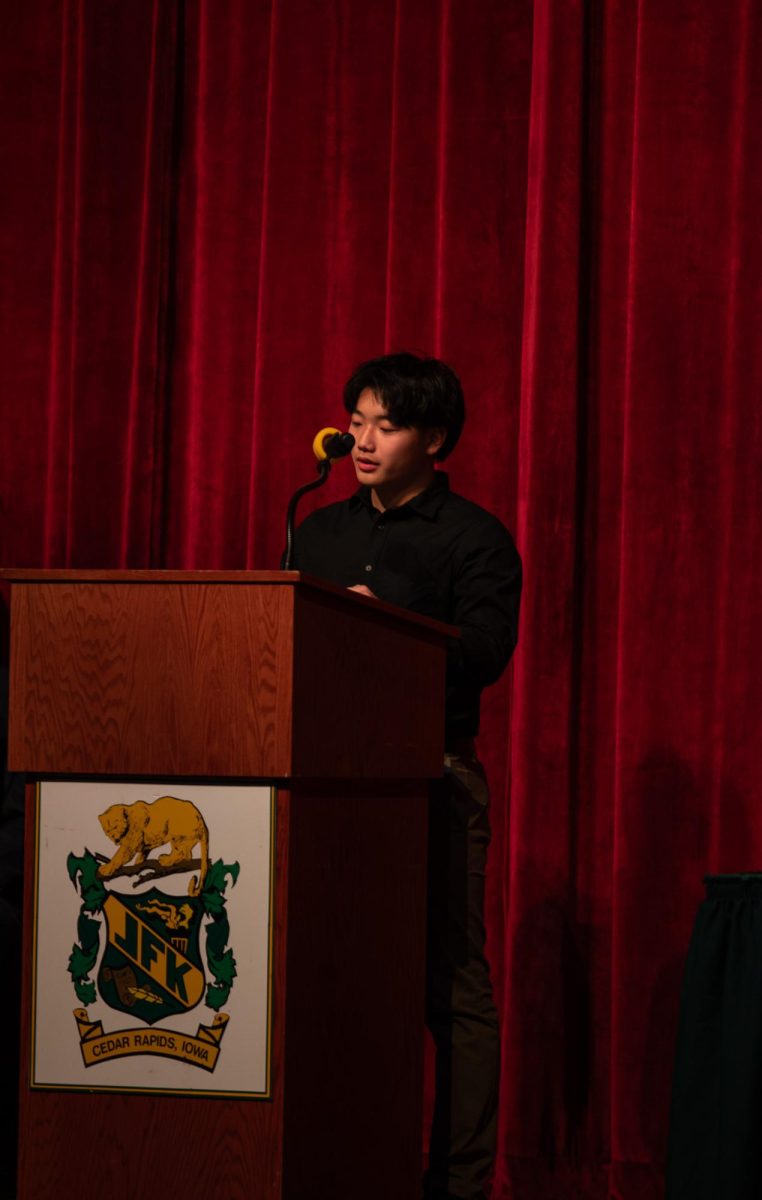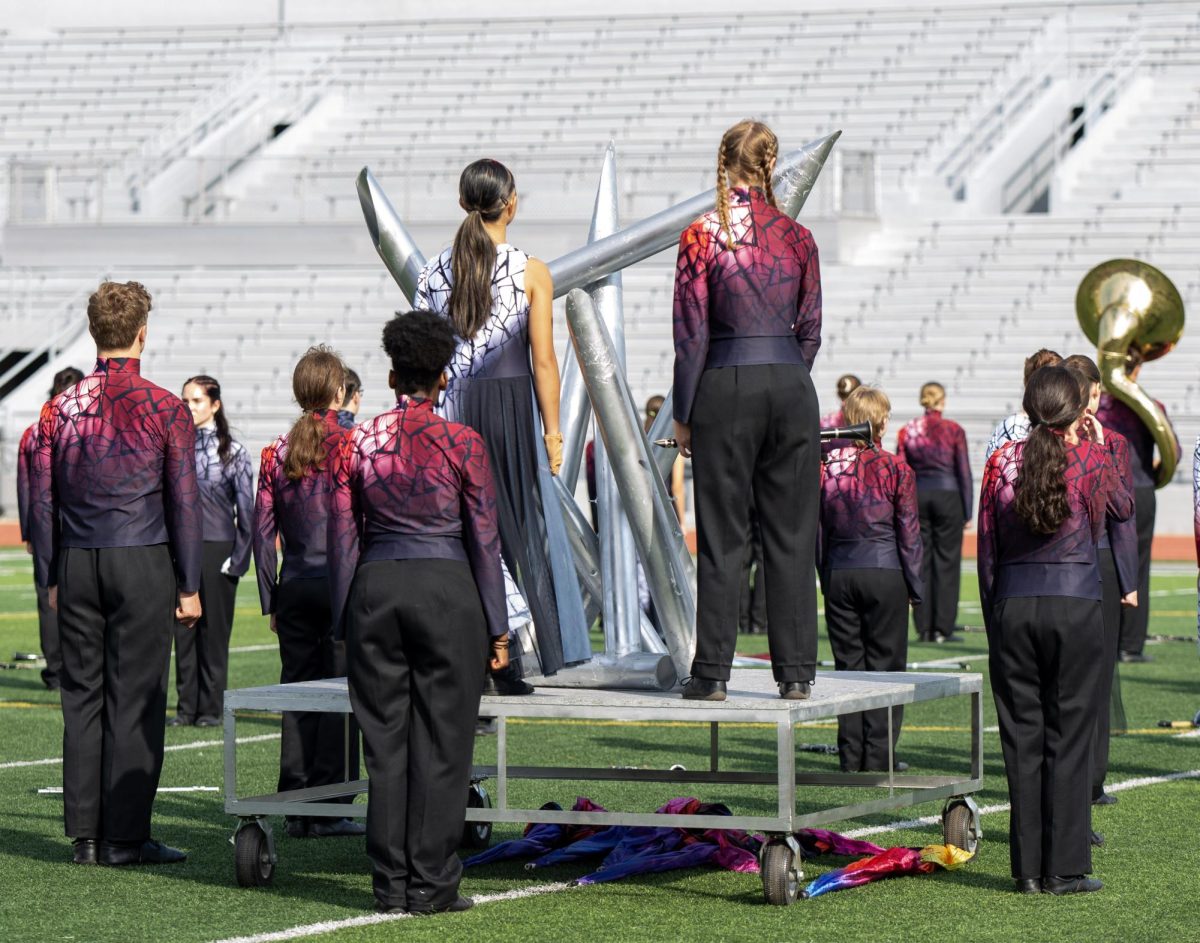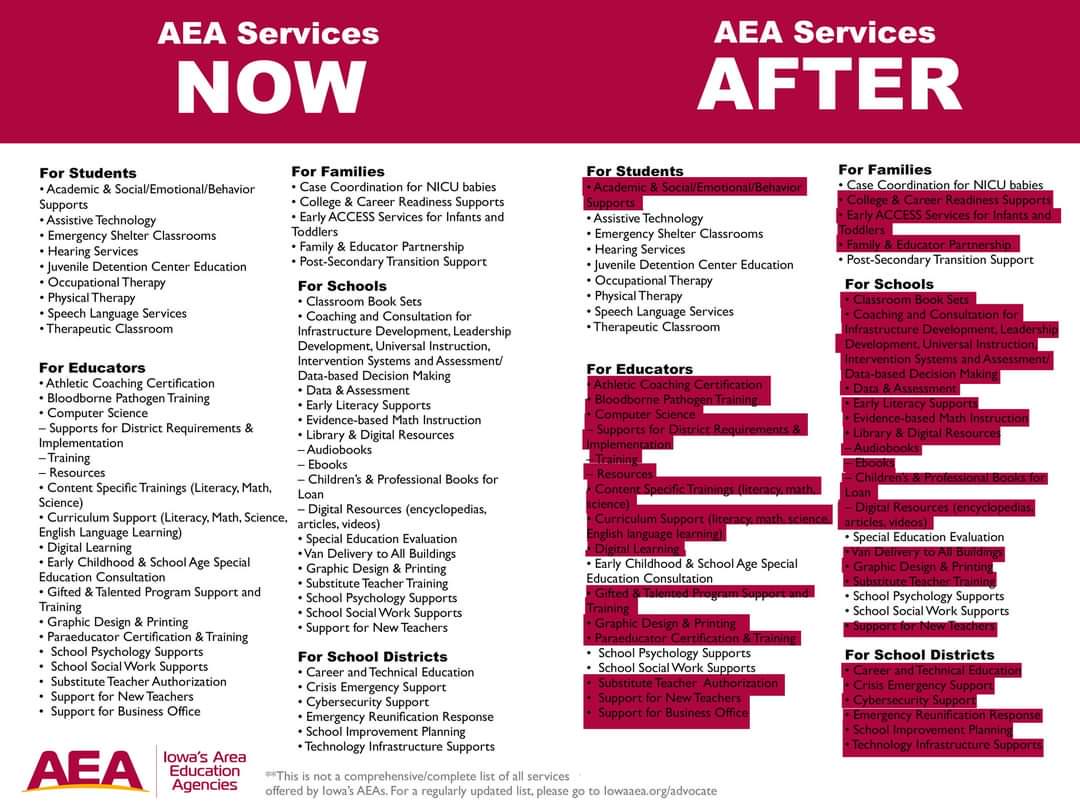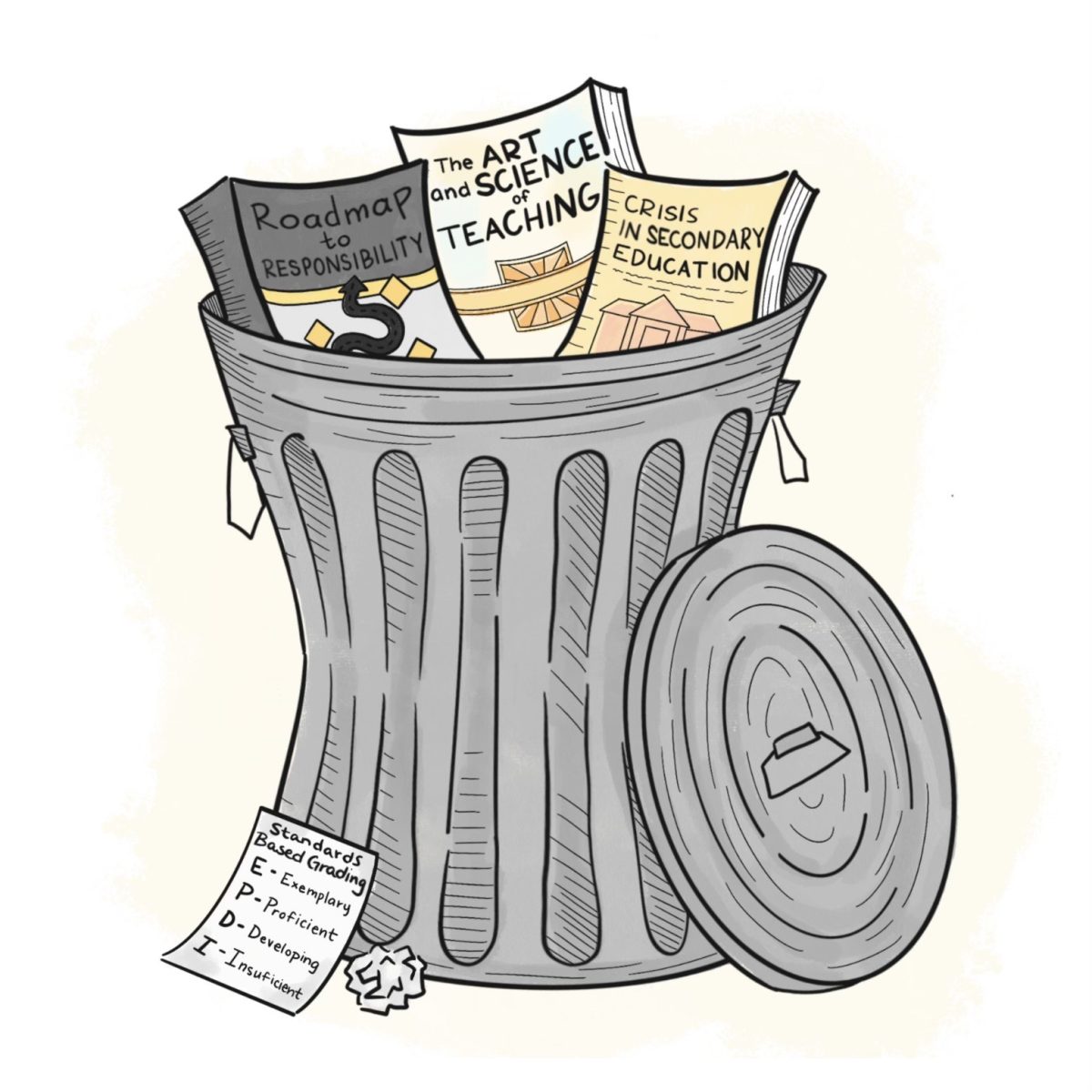The new AEA bill, House File 2612, has proven to be very controversial; with nine Republicans switching support to the Democratic opposition and Iowa House lawmakers voting 51-43. Moreover, this bill has led Iowan educators and students to uncertainty about their future.
House File 2612 reforms the school budgets for public and accredited non public schools in the 2024-2025 academic year. Currently, Iowa public schools hire local AEAs that support the extra education needs of schools. This includes special education programs, enrichment/gifted programs and educational technologies.
The new AEA bill means that individual school districts will now have full control over state and federal funding for special education programs. The governor’s new plan enacts the ability to hire private contractors for special ed. services rather than continuing work with the local AEAs.
“My work will be drastically impacted with funding changes due to the AEA bill,” Digital Learning Consultant Bridget Castelluccio said. “Resources and my services would most likely be cut”.
Castelluccio currently works in the Cedar Rapids Community School District (CRCSD) with the Grant Wood Area Education Agency. She works with the funding for online digital resources and technology platforms, as well as working to train other educators to use those tools. These programs improve learning conditions for students with disabilities and enrich Iowan K-12 programs through STEM and computer opportunities. Both programs will be hurt by this bill.
“A 10th grader I was working with at a high school was taking an AP level course and the reading was challenging,” Catsellucio said. “When they used a text reader, they were able to listen to the text which allowed for them to take more detailed notes and to go back and relisten to challenging parts.”
House File 2616 will cause AEAs to lose local control of funds. It is important for AEAs to keep control because the state does not know the individual needs of Castellucios’s students. She does. Students in special and gifted education programs will lose the personalization needed to be in such programs with this bill.
“Improving student outcomes has always been at the forefront,” Reynolds said. “The system must provide transparency and accountability to school districts, those closest to our students, and drive consistency across the AEA regions to improve services for students with disabilities”.
House Republicans believe state control is necessary to oversee that programs receive everything ‘more evenly’. However, Iowa senate lawmakers need to remember that ‘fair’ does not mean everyone has the same things, but that everyone has the things they need to succeed.
House File 2612 will move $20 million of funds from AEAs to the state in the coming academic year. This bill creates division within the Department of Special Education by overseeing the responsibilities of current AEAs by staffing 139 new employees, 13 to be stationed in Des Moines. Reynold’s bill plans to raise teacher pay and hire AEA supervisors for districts and the state as well. However, where this bill creates jobs, it also takes them away from already locally contracted AEAs.
The new bill cuts funds from AEAs, increasing the monetary dips in coming years. In the academic year 2025, AEAs will receive the funds deducted from school district aid, and 40% of calculated funds for media and educational services. The following year, 2025-2026, the state receiving special education funding does not require they send the entire monetary value to the AEAs, instead, the state keeps 10% of the funds. The bill that aimed to improve AEA services for the special ed programs is the same bill that allows district cuts from the programs.
Senator Clair Celsi said that the split funding for media and education services between AEAs and school districts would “not seem to cover the costs of either the AEA or the district to provide services”.
The funding cuts to programs led by AEAs are detrimental to both students and families of students with disabilities. Furthermore, this bill takes away from students in enrichment/ gifted programs, such as the Program for Creative and Academic Talent (PACT).
“By jeopardizing Area Education Agencies,” Harding 8th grader Jordyn Velitchkov said. “This bill jeopardizes my future, my kids’ future and my grandkids’ future.”
At a legislative forum regarding House File 2612, Velitchkov drew her academic successes back to her unique opportunities at AEAs, College for Kids and the PACT programs. She noted that none of the programs would be possible without the current form of AEAs in CRCSD.
“The [PACT] program gives kids like me the opportunity to learn concepts that challenge us, and set us up for the future,” Velitchkov said. “Iowa prides itself on the leaders it makes [from gifted programs], and those leaders can’t be held back. The AEA creates said leaders.”
Velitchkov said the AEA community encourages and celebrates overachievers, even receiving her first scholarship through the program. In her speech, she spoke on behalf of a large talented and gifted demographic who opposed the new bill. She also delivered a poem at the forum.

Poem by Jordyn Velitchkov, entitled ‘Gifted’
“Thank you to House leadership and House members for making progress on this important piece of legislation,” Reynolds said following the Iowa House-Senate passing on the bill.“The AEA system is failing our students, national and state test scores show it and the U.S. Department of Education tells us that, too.”
The floor manager of the bill, Senator Lynn Evans backed up Reynolds’s statement, saying changes to AEAs have been needed for more than a decade. They cited a 2011 study on the disparity between academic performance for students with disabilities in Iowa to validate their claim.
Senator Molly Donahue retorted that the 2011 study was out of date, and that a new task force was needed to address current issues existing within Iowa’s special education services. Donahue also recognized that this bill would hurt rural communities the most.
“The Senate Republican proposal will not produce better services, support or outcomes for our students,” Donahue said. “Instead, the proposal creates more uncertainty for the AEA system and an unstable system for our students to learn in.”
Despite all the negative feedback about it from students, teachers, parents and AEA employees it has continued through the legislative process. This bill will affect many students and teachers in Iowa school districts -how drastic these effects will be -we will have to wait and see.




























